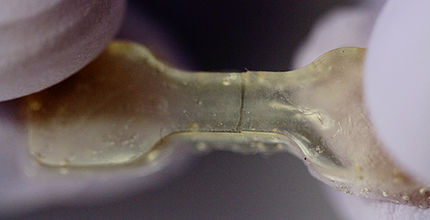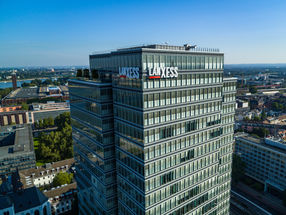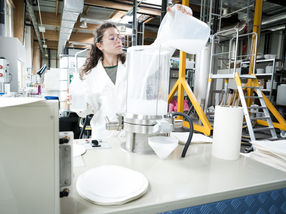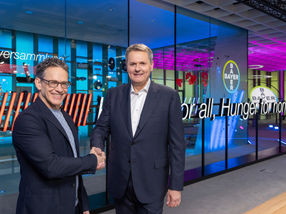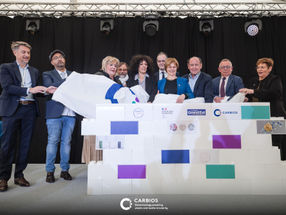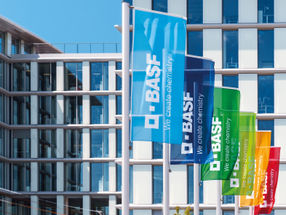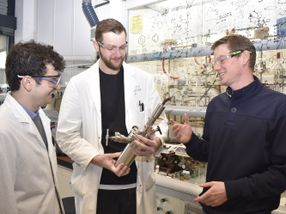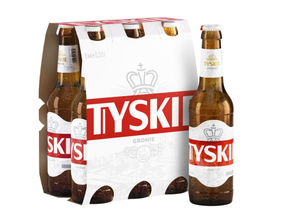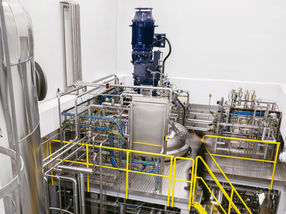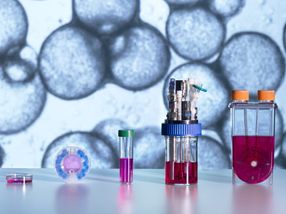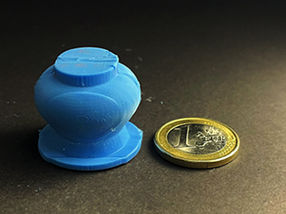Difficult third quarter - BASF proceeds with its restructuring measures
Sales increase slightly despite negative currency effects
In a business environment characterized by high raw material prices, margin pressure and a weak U.S. dollar, BASF Aktiengesellschaft increased its sales in the third quarter of 2003 by 2.1 percent to EUR7.7 billion compared with the same period in 2002. Excluding negative currency translation effects, sales increased by 7.6 percent. price increases contributed 2.1 percent to sales, but prices still remain at an unsatisfactory level. Sales volumes were up 4.5 percent.
"The latest figures for our ongoing business give grounds for hope that we have now reached the bottom of the downturn. However, there has still not yet been a real breakthrough. 2003 remains a difficult year, as demonstrated by the weak third quarter," said Dr. Jürgen Hambrecht, Chairman of the Board of Executive Directors of BASF Aktiengesellschaft, at a press conference to present BASF's third-quarter results.
Third-quarter income from operations (EBIT) before special items fell 31.8 percent to EUR403 million compared with 2002. This unsatisfactory operating result is due mainly to continuing pressure on margins in the Chemicals, Plastics and Performance Products segments. High oil prices kept purchasing prices for naphtha and natural gas high. BASF's chemicals operations remain burdened by overcapacities, especially in the United States and in Europe. Prices could therefore not be increased to the extent necessary.
EBIT after special items declined 20 percent to EUR374 million. Special charges related mainly to restructuring measures in the NAFTA region and integration costs for the crop protection business acquired by BASF.
Net income in the third quarter fell 51 percent to EUR120 million. In the third quarter of 2002, the financial result contained tax-free gains from the sale of marketable securities. The absence of these tax-free gains in 2003 led to a significant increase in the tax rate compared with the previous year.
Third-quarter earnings per share were EUR0.21 compared with EUR0.43 in 2002.
In the first nine months of 2003, BASF posted cumulative sales of EUR24.8 billion - slightly more than in the same period in 2002. Excluding currency effects, sales would have amounted to EUR26.7 billion, 10.2 percent more than in 2002. At EUR2.2 billion, EBIT before special items in the first nine months was 2.3 percent lower than in 2002.
Cash provided by operating activities is a good indicator of BASF's financial strength: At just over EUR3.5 billion, the figure for the first three quarters was already significantly higher than the full-year value for 2002 of EUR2.3 billion.
Outlook: Full-year EBIT before special items lower than in 2002
"In the summer, it was already clear that major efforts would be needed to match the previous year's earnings level. But our own efforts are not enough if there is not a sustainable improvement in the economic climate. We saw no signs of such an improvement in the third quarter," said Hambrecht. "Although there are currently initial signs of an economic recovery, high raw material costs, unsatisfactory margins in some areas of our chemicals businesses and the weak U.S. dollar will continue to put pressure on our business in the fourth quarter," he continued. Based on a slight increase in sales, BASF expects EBIT before special items to be lower than in the previous year in both the fourth quarter and for the full year.
Hambrecht also remains realistic when it comes to assessing future economic developments: "Even though more and more indicators are positive and pointing upward, we have to rely on facts rather than moods." He therefore stated that it is too soon to be able to predict when an economic recovery will set in, how strong it will be and how long it will last.
BASF is therefore focusing on its extensive Group-wide programs and initiatives to optimize its portfolio, reduce costs and restructure its organization. "The success of such measures lies primarily in our own hands," said Hambrecht.
Share buy-back program to be implemented as planned in 2003
In the first nine months of 2003, BASF shares have outperformed the EURO STOXX 50 index and have been included in the Dow Jones Sustainability Index for the third year in succession. BASF aims to implement its share buy-back program as planned in 2003, buying buy back shares for a total of EUR500 million. The company intends to continue its share buy-back program in 2004.
Performance of the segments in the third quarter of 2003
Agricultural Products & Nutrition and Oil & Gas posted significant increases in sales compared with the strong third quarter of 2002. Chemicals and Plastics maintained sales at the level of the previous year despite the weak dollar. Sales were slightly down in Performance Products.
The situation is different with regard to EBIT before special items. All segments with the exception of Agricultural Products & Nutrition reported lower income compared with the good third quarter of 2002. This segment improved by more than 36 percent thanks to higher sales volumes as well as extensive cost-reduction measures. As is typical in this sector, third-quarter income was negative due to the seasonal nature of the business.
At EUR271 million, the largest contribution to income came from the Oil & Gas segment. Sales increased 14.6 percent mainly due to higher volumes in the natural gas trading business. Significantly higher volumes of oil and gas were produced in the exploration and production activities. A higher oil price compared with the same period in 2002 led to an increase in sales, which, however, was partially offset by the weaker U.S. dollar.
Income in the Chemicals segment was negatively impacted by persistently high raw material costs coupled with competitive pressure. Startup costs following conversion of part of the chlorine production facilities at the Ludwigshafen site to a modern membrane process reduced earnings, as did scheduled maintenance of key production plants.
A fall in the price of polymers in Europe and the NAFTA region reduced income in the Plastics segment. In addition, fiber intermediates posted a loss. In September, however, the company was able to implement initial price increases for important polymers. The integration of the business acquired from Honeywell is proceeding as planned and initial cost synergies have been realized.
Third-quarter income in the Performance Products segment also failed to achieve the strong previous year's level. The weak dollar reduced income in the Performance Chemicals and Coatings divisions. The Functional Polymers division improved margins and income despite a difficult market situation.
